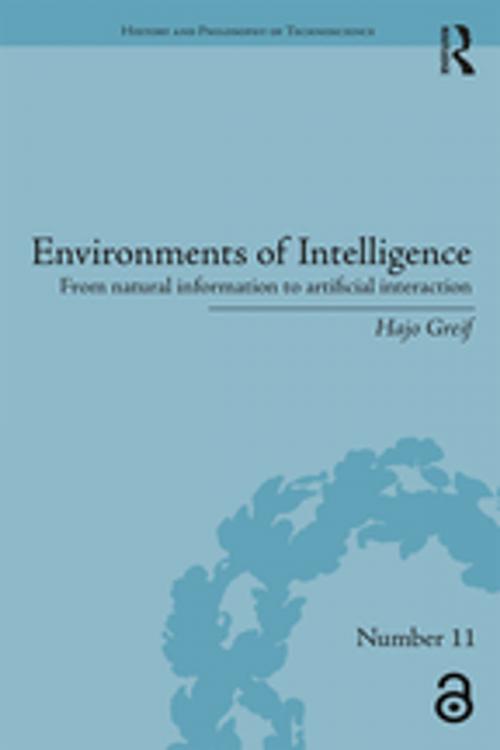Environments of Intelligence
From natural information to artificial interaction
Nonfiction, Science & Nature, Technology, Social Aspects, Science, Other Sciences, Philosophy & Social Aspects, History| Author: | Hajo Greif | ISBN: | 9781315408088 |
| Publisher: | Taylor and Francis | Publication: | September 1, 2017 |
| Imprint: | Routledge | Language: | English |
| Author: | Hajo Greif |
| ISBN: | 9781315408088 |
| Publisher: | Taylor and Francis |
| Publication: | September 1, 2017 |
| Imprint: | Routledge |
| Language: | English |
What is the role of the environment, and of the information it provides, in cognition? More specifically, may there be a role for certain artefacts to play in this context? These are questions that motivate "4E" theories of cognition (as being embodied, embedded, extended, enactive). In his take on that family of views, Hajo Greif first defends and refines a concept of information as primarily natural, environmentally embedded in character, which had been eclipsed by information-processing views of cognition. He continues with an inquiry into the cognitive bearing of some artefacts that are sometimes referred to as 'intelligent environments'. Without necessarily having much to do with Artificial Intelligence, such artefacts may ultimately modify our informational environments.
With respect to human cognition, the most notable effect of digital computers is not that they might be able, or become able, to think but that they alter the way we perceive, think and act.
The Open Access version of this book, available at http://www.tandfebooks.com/doi/view/10.4324/9781315401867*, has been made available under a Creative Commons CC-BY licence*
What is the role of the environment, and of the information it provides, in cognition? More specifically, may there be a role for certain artefacts to play in this context? These are questions that motivate "4E" theories of cognition (as being embodied, embedded, extended, enactive). In his take on that family of views, Hajo Greif first defends and refines a concept of information as primarily natural, environmentally embedded in character, which had been eclipsed by information-processing views of cognition. He continues with an inquiry into the cognitive bearing of some artefacts that are sometimes referred to as 'intelligent environments'. Without necessarily having much to do with Artificial Intelligence, such artefacts may ultimately modify our informational environments.
With respect to human cognition, the most notable effect of digital computers is not that they might be able, or become able, to think but that they alter the way we perceive, think and act.
The Open Access version of this book, available at http://www.tandfebooks.com/doi/view/10.4324/9781315401867*, has been made available under a Creative Commons CC-BY licence*















